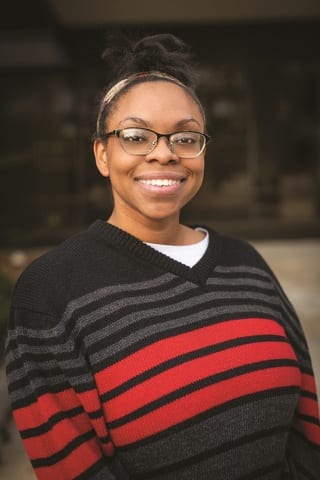Somica Brower was at her lowest point in February. After having just given birth to her third child, Brower’s sister passed away from COVID-19 and her husband left their family, all within a span of three weeks. Suddenly a single mother and feeling isolated, Brower didn’t know where to turn for help. Then she found Bridge of Hope of Centre County.
Founded more than 30 years ago in the Lancaster area, Bridge of Hope has grown to a network of more than 20 locations in 12 states. Since Bridge of Hope Centre County started in 2007, the organization has served 21 families, which include 21 single mothers and 41 children. Some Bridge of Hope locations help single fathers and homeless couples with children, but the Centre County location currently assists only single mothers with children.
“Our goal is to help each family achieve safe and sustainable housing, grown in family strength and resilience, and experience supportive neighboring relationships,” says Tirzah Gibboney, director of Bridge of Hope Centre County. “We are working to end family homelessness in Centre County. We do that by using a holistic, whole-family approach. We offer rental assistance on a decreasing basis, strengths-based case management services, and connect each family in our program with a group of Neighboring Volunteers – people from a local Christian community who are willing to build a relationship with the family and offer support and encouragement to them as they work toward stability.”
Quarantine restrictions related to COVID and having a baby made it feel impossible for Brower to seek support from friends and family in other states. Feeling utterly alone and left to figure out how to start life over, a friend of Brower’s told her about Gibboney and her work helping single mothers.
“From the first moment I spoke with Tirzah, she was warm, welcoming, and unbelievably helpful,” Brower, 29, says. “She sat with me and not only discussed what I needed to get on my feet; she helped talk me through my feelings, set goals, and all around was just present for me.”
A lot of initial work with most mothers coming into the program involves ensuring that housing is secured and helping a family ease out of survival mode, Gibboney explains. Once a safe and sustainable place for a family to live in is found or a family has been able to preserve their current housing, a rental assistance schedule is created. This is an agreement between Bridge of Hope and each family to determine the breakdown of rental payments over the course of about one year. Bridge of Hope usually pays 100 percent of the rental deposit and first-month rent, and then as the family is in the program and becomes more self-sufficient, the assistance gets lower.
For example, the organization starts at 100/0 percent, then goes to 75/25 percent, then 50/50 percent, then 25/75 percent until the client can pay the rent (and all other bills) on their own. While they are in the program, a case manager will help the mother create goals and action plans for her family. These can be related to budgeting and money management, applying for assistance or other resources that are available, finding an apartment/car/job/daycare, educational or employment goals, etc.
“We allow each mother to set her own priorities and goals, and we just support her in any way that we can,” Gibboney says.
Brower considers her goals simple, but incredibly important: create a stable home situation for her children (Lincoln, 5; Wyatt, 3; and Evangeline, 1) by building a home that they can grow in and feel safe. She’d also like to return to Penn State to continue her education, but likely when her children are older.
Originally from Montgomery County, Maryland, Brower moved to State College in 2011 to attend Penn State as an undergraduate. She returned in 2016 to pursue a graduate degree, but was unable to complete the requirements.
She is happy she has been able to find employment through HR Office and began part-time November 2 at Pegula Ice Arena, working with COVID testing. She collects samples and transfers them to labs. She hopes to be hired full-time after working her 60 days and get benefits after 100 days.
“I am proud that I have been able to pick myself up through tragedy, and in spite of setbacks that I continue to move forward,” Brower says.
As for advice she would give anyone facing challenges, Brower says to never give up and show yourself grace.
“Try not to focus on where you are now,” she says. “Focus on making bite-sized goals and celebrate the little victories.”
Learn more about Bridge of Hope of Centre County, including how to volunteer, by visiting centre.bridgeofhopeinc.org.



